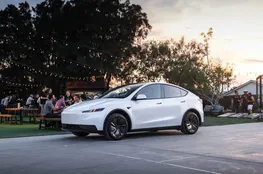The escalating tensions surrounding Trump’s tariffs are creating a critical inflection point for the burgeoning artificial intelligence (AI) landscape, particularly concerning the U.S.’s ability to rapidly scale the manufacturing of AI devices. CNBC’s Deirdre Bosa recently sat down with ‘The Exchange’ to dissect this complex situation, focusing on the readiness of American companies – notably Apple – to successfully transition towards domestic production of AI hardware. The discussion highlighted a significant challenge: the current global supply chain for specialized components critical to AI device creation is heavily reliant on overseas manufacturing, predominantly in Asia. This reliance is now being intensified by President Trump’s ongoing efforts to discourage Apple and other tech giants from producing AI devices outside of the United States, aiming to bolster domestic production and reduce the nation’s dependence on foreign technology. The implications of these tariffs extend far beyond simply increasing costs for Apple; they represent a fundamental test of America’s capacity to compete in the rapidly evolving AI sector, which is poised to be a trillion-dollar industry within the next decade. Bosa’s interview underscored the urgent need for substantial investment in domestic manufacturing capabilities, including semiconductor fabrication, advanced materials production, and skilled labor training programs. Furthermore, the conversation touched upon the potential for government incentives and policy adjustments to accelerate this transition. The speed at which the U.S. can establish a robust AI manufacturing ecosystem will directly impact its technological leadership and economic competitiveness in this transformative industry.
Analysts predict that the tariffs are forcing a strategic reassessment of supply chain vulnerabilities and prompting a renewed focus on reshoring critical technologies. The debate centers around whether the U.S. can realistically build a fully self-sufficient AI manufacturing base within the timeframe required to maintain its position as a global innovation leader. Ultimately, the success of this endeavor hinges on a coordinated effort involving government, industry, and academia to overcome significant technological and logistical hurdles. The potential ramifications of failure – falling behind China and other nations in the AI race – are considerable, demanding immediate and decisive action. The exchange explored the specific challenges Apple faces, including the complexity of redesigning existing products and the substantial capital investment needed to establish new manufacturing facilities. It also addressed the broader implications for other tech companies operating in the AI space, suggesting that the Trump administration’s approach could trigger a ripple effect across the industry.
The conversation concluded with a sober assessment of the obstacles and a call for proactive measures to ensure America’s continued dominance in the AI revolution. Bosa’s interview underscored the urgent need for substantial investment in domestic manufacturing capabilities, including semiconductor fabrication, advanced materials production, and skilled labor training programs. Furthermore, the conversation touched upon the potential for government incentives and policy adjustments to accelerate this transition. The speed at which the U.S. can establish a robust AI manufacturing ecosystem will directly impact its technological leadership and economic competitiveness in this transformative industry.
























